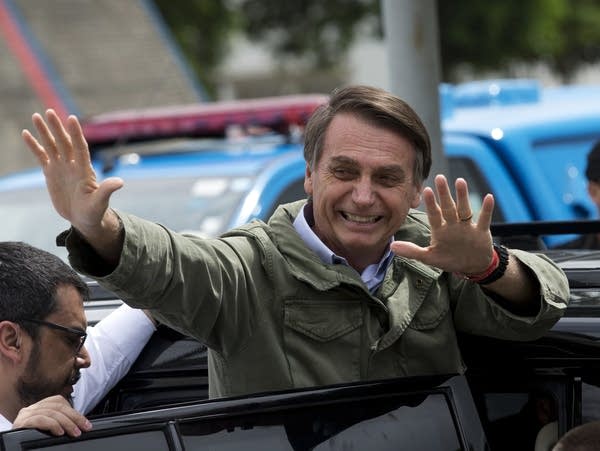Why Brazil's new president may cause more rainforest destruction, violence

Jair Bolsonaro, Brazil's president-elect.
Silvia Izquierdo | AP file
Go Deeper.
Create an account or log in to save stories.
Like this?
Thanks for liking this story! We have added it to a list of your favorite stories.


